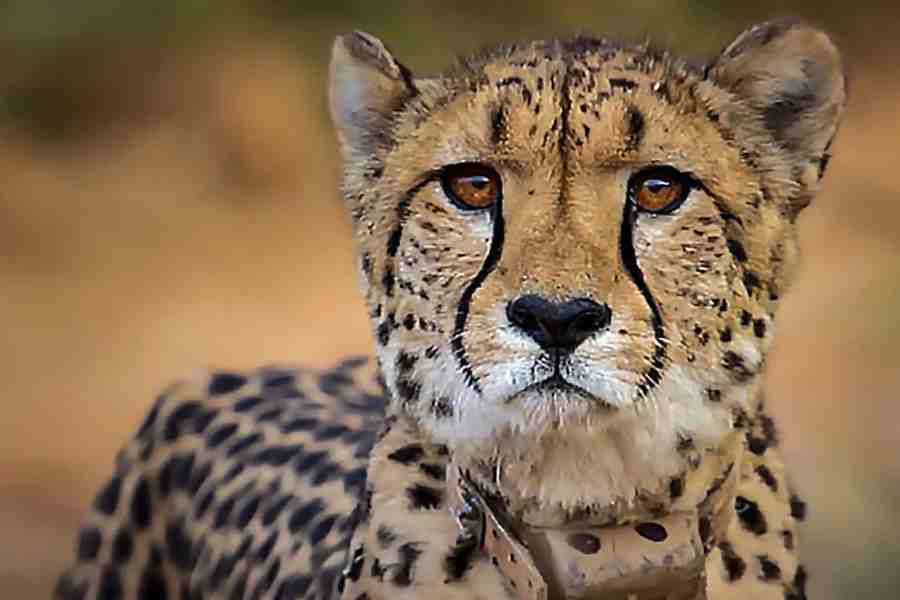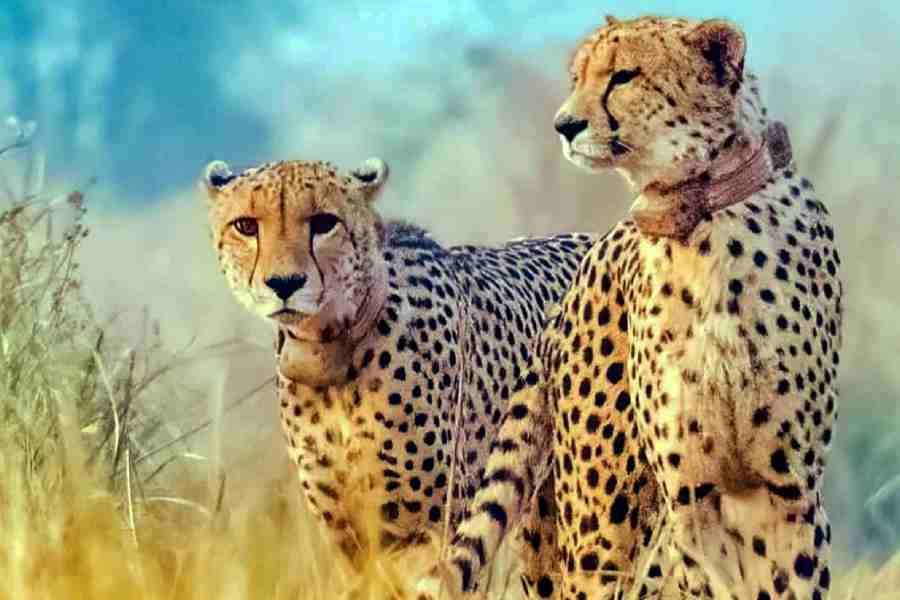The three cheetah cubs that died in the Kuno National Park succumbed to starvation with the extreme summer heat merely worsening their already deteriorating health, conservation researchers have said using information that Indian wildlife authorities have not made public yet.
The cubs’ low body weights and malnourished status indicated that they had not eaten adequate meat for 10 days before they collapsed on May 23, an exceptionally hot day, researchers familiar with their health conditions and post-mortem results have said.
Each of the three cubs — among four born to a Namibian cheetah in Kuno around March 25 and living with their mother within a fenced enclosure — died on May 23. Veterinarians in Kuno have since then been treating the fourth cub, which has regained weight and is set to be reunited with its mother.
Wildlife officials managing India’s cheetah introduction project have attributed the cub deaths to heat, dehydration and malnourishment. They have also suggested that the first-time cheetah mother may have been unable to provide adequate nourishment to the cubs.
“This is very common with cheetahs in the wild,” Qamar Qureshi, a scientist with the Wildlife Institute of India, Dehradun, and member of the cheetah project’s advisory panel, told The Telegraph. “First-time mothers may not nurse cubs as much as they need or may not help them with eating meat.”
A video clip of the cubs made by a monitoring team in Kuno on May 14 and the cubs’ conditions when brought in for treatment on May 23 suggest that the cubs, intended to serve as “founders” of cheetah populations in India, did not eat enough over those 10 days.
The medical intervention that day — as temperatures soared above 45°C in Kuno, Madhya Pradesh — came too late for the three cubs.
“Ten days without meat and sufficient milk from the mother is a death sentence,” said Susan Yannetti, director of strategic initiatives at the Cheetah Conservation Fund (CCF), a private research institution in Namibia that facilitated the transfer of eight Namibian cheetahs into Kuno last September.
The CCF’s project cheetah team has said the cause of the deaths was starvation, and the heat wave may have exacerbated the situation. The cubs’ average body weight was 1.6kg instead of an expected nearly 3kg, the team told this newspaper. The CCF team members have for months assisted the cheetah monitoring and other wildlife staff in Kuno.
Cheetah cubs typically suckle for six to seven weeks, according to biologists with the CCF and other institutions who have for years observed cheetah cubs in the wild and in captivity.
During this time, the mother goes out to hunt and eat and returns to the den to rest and nurse the cubs. Between six and seven weeks, the cubs move out of the den and start eating the kills the mother makes, as she cannot produce enough milk to support growing cubs at this age.
A cheetah monitoring team first observed the Kuno cubs walking with their mother on May 13. They were seven weeks then and should have begun to start eating meat. The May 14 video clip showed the cubs looking “active, healthy, and great”, according to veterinarians who have seen the clip. But when the cubs were brought in for treatment on May 23, they were severely malnourished.
No one knows why the cubs hadn’t eaten. “This was her first litter of cubs and it is not unusual for cheetah mothers to struggle with raising first litters,” said Adrian Tordiffe, a veterinary scientist at the University of Pretoria, South Africa.
“She seemed to do well at first, but something went wrong when the cubs became more mobile,” said Tordiffe, who also believes the cubs had starved and the heat had merely exacerbated their condition. “Either she was not producing enough milk or she found it difficult to feed them.”
India had flown in 12 more cheetahs from South Africa in February this year. Three adult cheetahs have also died from different causes since March, but conservation scientists and officials have said the deaths, although unfortunate, do not represent a setback to the project.
The Union environment ministry, which is implementing the cheetah introduction project, said in a statement shared with this newspaper that there was no scope for early intervention to help the cubs because the project seeks to establish cheetahs in natural wild conditions, not in captivity.
There is disagreement, however, among conservation researchers whether Kuno’s cheetah monitoring teams had opportunities and whether they should have paid greater attention to the cubs’ health during this vulnerable phase of their lives — given their importance to the project.
(To be continued)












